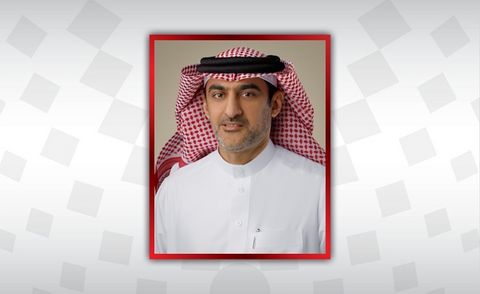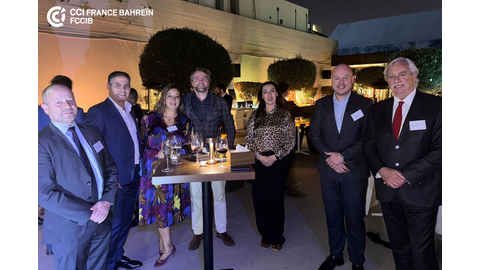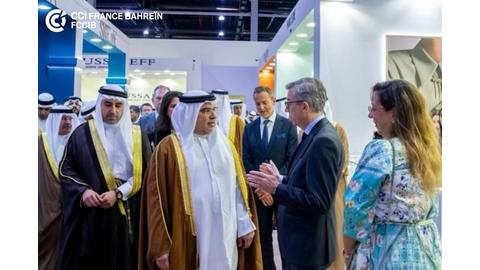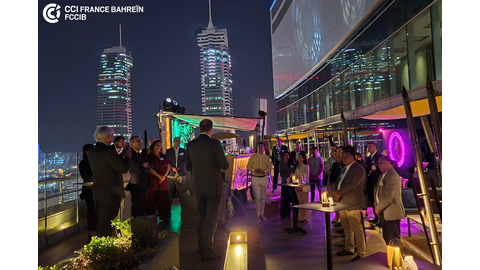Al Qaed: HRH the Crown Prince and Prime Minister’s patronage of ‘Taqyeem’ and his directives enhance Government Services, instill culture of excellence

Information & eGovernment Authority (iGA) Chief Executive and Taqyeem Committee Chairman, Mohammed Ali Al Qaed said that the Taqyeem programme, since its launch in 2018 up to its 3rd edition (Taqyeem 3) in 2021 is a pioneering initiative that aims to enhance government performance and achieve sustainable development.
Its success has been achieved under the leadership of HM King Hamad bin Isa Al Khalifa, and with the support of the His Royal Highness Prince Salman bin Hamad Al Khalifa, the Crown Prince and Prime Minister. The programme reflects a commitment to improving the quality and efficiency of government services.
Al Qaed noted that the success of the latest edition is a prime example of the effectiveness of national strategies led by His Royal Highness Crown Prince and Prime Minister, which are in line with an ambitious vision to develop public service channels and ensure customer satisfaction.
Al Qaed reported that ‘Taqyeem (3)’ recorded a notable increase in competitiveness between service centres, highlighting their improved levels of excellence in serving beneficiaries. A total of 19 Government Customer Service Centres received Gold Category Shield, more than double the achievers in the previous edition.
Al Qaed commended the Crown Prince and Prime Minister’s support, which greatly enhanced the performance of Government Customer Service Centres and their offerings to citizens, residents, visitors, and business owners.
He credited the Royal Directives that ensured that the Taqyeem Committee and its members continue to conduct periodic evaluations and follow-ups, in line with evolving requirements and drawing from international best practice and sustainability objectives.
Al Qaed congratulated the Committee’s members, the administrative and supervisory teams, as well as all the Government Customer Service Centres leaders and employees that were ranked within the Gold and Silver categories.
He praised the 48 centres across the Kingdom’s Governorates that achieved over 90% in the Basic Criteria of the evaluation. This represents more than 55% of the evaluated centres. Al Qaed said that these results are a reflection of the excellence stabilized as guided by the Crown Prince and Prime Minister’s initiatives and directives.
Al Qaed added that the Committee continues to promote the Customer Service Culture and enhance the efficiency of public services channels by raising awareness of the importance of competitiveness and reinforcing a spirit of creativity and innovation.
The result has been an increase in the number of Gold Category Ranked Centres in the current edition to 19, representing six different government entities. He also highlighted the Committee’s support towards the remaining centres to improve the effectiveness of their services and achieve better results in future editions of the program.
Al Qaed revealed that the number of Taqyeem criteria listed in the current guide is 104, up from 94 in the previous edition. They were grouped into two categories: 71 Criteria in the Basic category, and 33 in the Advanced category (Mandatory and non-Mandatory).
All the criteria were defined under a unified framework for evaluation and were distributed among five main categories related to the Customer Journey while benefiting from a service through this Direct Channel (Service Centre). These includes Centre’s Accessibility, Excellence in Services Provision, Centre’s Environment Readiness, Customer’s Flow Management, and Effectiveness of Services Operations and Processes.
Gold Category Ranked Centres met all the Basic and mandatory Advanced criteria with at least 80% in the non-mandatory Advanced criteria. Silver Category Ranked Centres scored 100% in the Basic criteria. Centres that did not meet all the Basic criteria were ineligible for any category.
A total of 86 Customer Service Centres representing 17 Government Entities participated in ‘Taqyeem (3)’. Six field visit teams consisting of 18 evaluators and 15 mystery shoppers, worked continuously during the evaluation process, meticulously recording their results through an interactive electronic system designed specifically for the Committee’s purposes.


